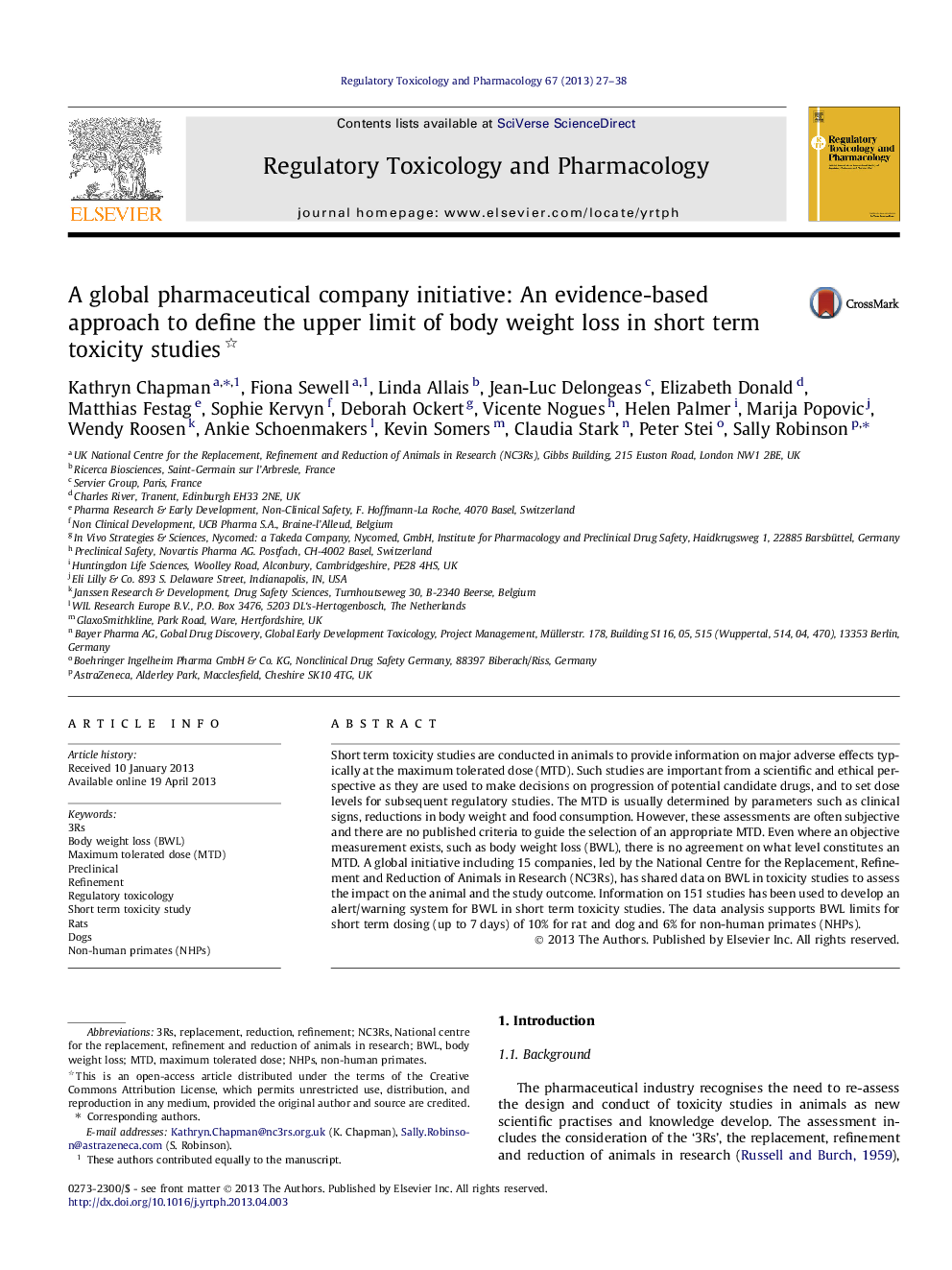| Article ID | Journal | Published Year | Pages | File Type |
|---|---|---|---|---|
| 5857505 | Regulatory Toxicology and Pharmacology | 2013 | 12 Pages |
Abstract
Short term toxicity studies are conducted in animals to provide information on major adverse effects typically at the maximum tolerated dose (MTD). Such studies are important from a scientific and ethical perspective as they are used to make decisions on progression of potential candidate drugs, and to set dose levels for subsequent regulatory studies. The MTD is usually determined by parameters such as clinical signs, reductions in body weight and food consumption. However, these assessments are often subjective and there are no published criteria to guide the selection of an appropriate MTD. Even where an objective measurement exists, such as body weight loss (BWL), there is no agreement on what level constitutes an MTD. A global initiative including 15 companies, led by the National Centre for the Replacement, Refinement and Reduction of Animals in Research (NC3Rs), has shared data on BWL in toxicity studies to assess the impact on the animal and the study outcome. Information on 151 studies has been used to develop an alert/warning system for BWL in short term toxicity studies. The data analysis supports BWL limits for short term dosing (up to 7Â days) of 10% for rat and dog and 6% for non-human primates (NHPs).
Keywords
Related Topics
Life Sciences
Environmental Science
Health, Toxicology and Mutagenesis
Authors
Kathryn Chapman, Fiona Sewell, Linda Allais, Jean-Luc Delongeas, Elizabeth Donald, Matthias Festag, Sophie Kervyn, Deborah Ockert, Vicente Nogues, Helen Palmer, Marija Popovic, Wendy Roosen, Ankie Schoenmakers, Kevin Somers, Claudia Stark, Peter Stei,
